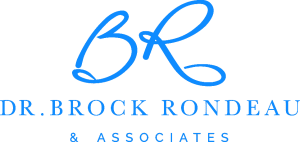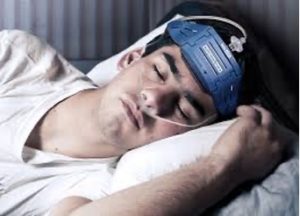
Snoring is a noise caused by patients mainly sleeping on their backs which causes the tongue and soft palate to block the airway causing a snoring sound.
When the patient snores at night and is extremely tired during the daytime there is a good chance that the patient also has sleep apnea. The most common initial medical condition that occurs with sleep apnea patients is high blood pressure and acid reflux (heartburn).
It is an obstruction in the upper airway when you stop breathing for 10 seconds or more. This causes a cessation of breath, sometimes over 30 times per hour. 85% of people that have sleep apnea are unaware they have it. Patients will wake up choking and gasping for breath when their tongue blocks the airway. This is very common in children and adults with large tonsils. When you stop breathing (sleep apnea) this cuts off the oxygen which increases blood pressure and can cause heart attack, atrial fibrillation, congestive heart failure, 5 times greater chance of cancer, strokes, dementia, Alzheimer’s, headaches, acid reflux, type 2 diabetes, impotence. 64% of all type 2 diabetics have sleep apnea. Severe Sleep Apnea patients die 10 years sooner.
Patients must undergo a sleep study at night. PSG, Polysomnogram sleep study takes place in hospitals or private sleep clinics. The technician attaches 16 wires to the patients body for the test. Most patients report that with all the noises and in a strange bed and environment it is very difficult to get a normal nights sleep.
If the diagnosis made by a Board Certified Sleep Specialist is mild to moderate sleep apnea they should be referred to a dentist to fabricate an oral appliance.
If the diagnosis is severe sleep apnea then the patient will need to try a CPAP device.
If your bed partner mentions that you are stopping breathing at night or you wake up choking sometimes, you most likely have sleep apnea. Another sign is snoring and extreme daytime fatigue. For your overall health you should make an appointment with Dr. Rondeau to get a home sleep study to obtain a diagnosis.
Please call the office at 519-455-4110 to set up a consultation appointment with Dr. Rondeau. Virtual consults can be arranged at no charge.
Patients get the device at the dental office and take it home and have the sleep study done in their own bed. Very comfortable instead of going to the hospital or sleep clinic for the extensive sleep study (PSG) when they have 16 wires attached to their body and told to get a good sleep in a strange environment. The results of the Home Sleep Study are sent to a Board Certified Sleep Specialist who reads the study and sends a report to the dentist. The sleep specialist will either recommend the custom oral appliance made by the dentist or the CPAP device.
Patient much prefer the Home Sleep Study as it is much more comfortable with this small device either on the forehead (ARES Home Sleep Study) or on their wrist (WatchPat).


A custom made mouthpiece made by your dentist with special training on treating sleep disorders.
These custom made oral appliances (custom mouthguards) can minimize or eradicate snoring completely. These appliances gently move the lower jaw and tongue forward at night to open the airway and eliminate the snoring.
CPAP means Continuous Positive Air Pressure. This CPAP device fits over the nose, or nose and mouth, and blows air up your nose all night to try and open the airway. The air originates in an air compressor attached to the hose placed either on the floor or bedside table. The failure rate for CPAP is over 70%. Many patients cannot handle the CPAP due to claustrophobia, tightness of the strap on the head and face, air leaks out into the eyes, air in stomach, marks on the face in the morning, dry mouth, dry nose, and other uncomfortable signs and symptoms.
The acceptance rate is higher in patients who have severe sleep apnea. This CPAP device is the preference for the medical profession.
If your snoring is bothering your bed partner or you are extremely tired during the daytime, you need to arrange to get a home sleep study at Dr. Rondeau’s office. For health reasons you must find out if you have life-changing sleep apnea.
Please call our London, Ontario office at 519-455-4110 to set up a consultation with Dr. Rondeau. Virtual consults can be arranged at no charge.

Dr. Sep & Dr. Rondeau give you the confident smile you have always wanted!
Privacy | Disclaimer Copyright © 2024 Digital Rein | All Rights Reserved